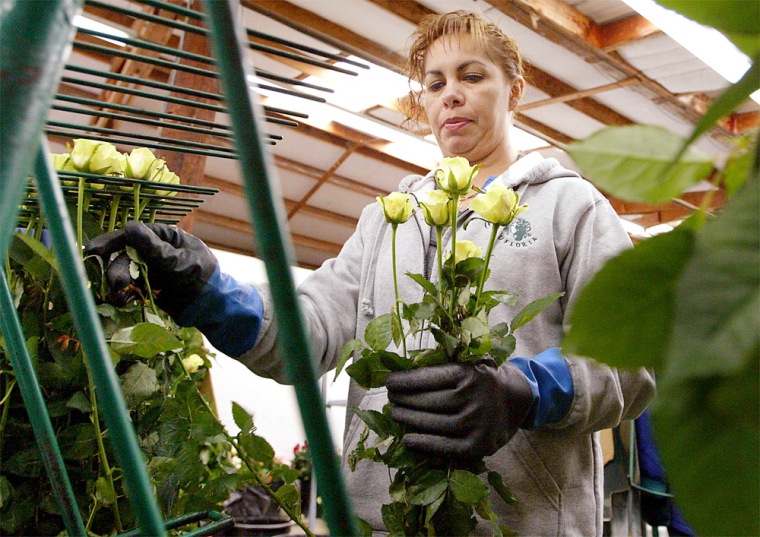Catharine Gray loves to garden, even though the outdoors can make her sniffle and sneeze. Before going out with trowel and shovel, Gray checks the pollen count and weighs the options.
On some really bad pollen days, she postpones her planting. But, sometimes the urge to get a newly purchased prize into the ground is too strong and the 31-year-old Philadelphia woman grabs her nasal spray, pops her allergy pills and plows on.
For gardeners with allergies, spring is a mixed blessing. As the weather warms and the first flowers pop up, some plants will start poofing their pollens, leading to sniffling, sneezing and wheezing.
But not all plants are equally guilty when it comes to triggering allergy symptoms. If you choose your plants wisely, experts say, you can minimize the toll on your respiratory system.
The birds and the bees
The main problem for those who have allergies but are addicted to gardening, is airborne pollen. Fortunately, there are plants that hold their pollen more closely.
"The general rule is that brightly flowering plants with a strong perfume are less allergenic," says Dr. Marc Riedl, a clinical instructor at the David Geffen School of Medicine at the UCLA. "These flowers evolved to be pollinated by insects. So there is sticky pollen that tends to stay within the flowering part of the plant."
So, dogwood trees and roses would be a good choice, says Dr. S. Michael Phillips, a specialist in allergy and immunology and a professor of medicine and neurology at the University of Pennsylvania School of Medicine.
Plants that propagate by spewing pollen into the air tend to be less showy, Phillips says. They often have small, nondescript flowers, he adds. But those little blossoms are very effective, according to Phillips. Each plant can make hundreds of thousands of pollen grains.
But even when it comes to plants known for spewing vast quantities of pollen into the air there are options, according to Riedl.
Some plants -- American hollies, persimmons, spices bushes, ash trees and poplars, for example -- come in male and female varieties. Since it’s the male plant that produces the pollen, you can have your plant and clear air, too, if you purchase only female varieties, Riedl says.
The grass is greener ...
No matter how carefully you pick your plants, there is always a possibility that a neighbor’s green thumb can make your eyes itch and water.
If you’re allergic to grasses, like Gray, you may react to your neighbor’s plush green back yard, even though you’ve chosen to eschew a lawn.
If you really can’t live without a lawn of your own, choose a grass that needs to be taller to pollinate. Timothy would be a bad choice, Phillips says, because it can produce pollen when it’s only a few inches tall.
"Some of the other varieties need to be six or seven inches tall," he adds. "So in that case keeping the lawn short will help."
And if your neighbor goes out to mow, you might want to choose a different day to garden. Mowing can kick up pollens that have settled down between the blades of grass, experts say.
Since you have no control over what your neighbors’ plant, it can help to know which plants you’re allergic to and when they pollinate. Grasses, for example, tend to pollinate early in spring, Phillips says.
It’s also a good idea to keep the weather forecast in mind, Phillips says. You’re more likely to have problems with pollen on a sunny day that follows a rainy one.
If you find yourself itching and sneezing each time you go out to till the soil, you might consider buying a mask to block irritating pollens from your throat and nasal passages, Phillips says. And protective eyewear can forestall itchy, watery eyes.
By taking allergy medications before you go out to groom your flowerbed, you may be able to stave off a reaction. Experts say that it’s easier to prevent a reaction than it is to stop a full-blown one.
